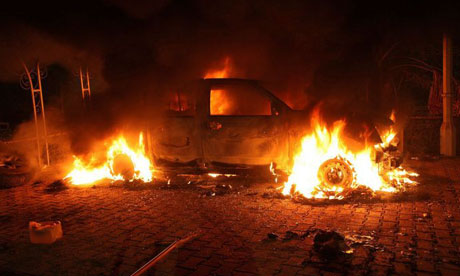“The Delaware Information and Analysis Center (DIAC) now
offers a mobile app to report suspicious activities in real-time by
attaching a photo, sending location information, or entering details
about suspicious vehicles or persons. In addition, users can choose to
make their report anonymously or can include contact information for
follow-up by law enforcement,” reports DailyFinance.com.
The new “Anti-Terrorism Mobile FORCE 1-2 App” is
available for both iPhone and Android users and is being touted as a
method of leveraging tips provided by citizens to “help protect the
State”.
The information received is channeled through the the
state Fusion Center (DIAC) and then shared amongst federal, state and
local law enforcement.
The federal government has moved to aggressively protect
federal Fusion Centers, which are littered across the country, from
Congressional insight and has shielded their employees from taking
responsibility for their actions.
Under the Department of Homeland Security’s See
Something, Say Something initiative, all manner of banal activities have
been characterized as “suspicious”.
A 2011 PSA for
the program labeled behavior such as opposing surveillance, using a
video camera, talking to police officers, wearing hoodies, driving vans,
writing on a piece of paper, and using a cell phone recording
application as potential indications of terrorism.
The last example is
particularly ironic given that the DIAC app requires people to take
photographs in public to report suspicious activity – an activity which
in itself has been characterized as suspicious by the authorities.
Earlier this year the FBI issued flyers under the Communities Against Terrorism
(CAT) program which identified behavior such as paying for a cup of
coffee with cash, showing concern for privacy when using the Internet in
a public place, or using Google Maps as potential signs of terrorist
activity.
Enlisting untrained citizens to be the eyes and ears of the state is a classic hallmark of an authoritarian society. History clearly tells us that using citizens to inform on their fellow
countrymen does not make a nation safer and only serves to breed
distrust and suspicion amongst a host population.
Having the state encourage citizens to report
“suspicious activity” is not only un-American, it represents a direct
attack on the idea that a law abiding citizen can go about their
business without the onerous psychological pressure of knowing that
their every behavior could be analyzed and misinterpreted by a fellow
citizen.
This psychologically compels people not only to moderate
their behavior, including their political speech and exercising of
inherent freedoms, but it also bolsters the myth that terrorists are
potentially lurking around every corner and that the vast bloated
budgets swallowed up by federal Fusion Centers are justified.







































